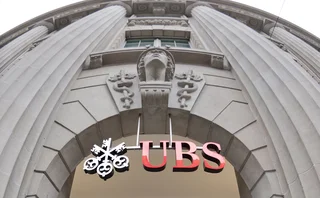
IMF estimates crisis losses at $1.4 trillion
The International Monetary Fund (IMF) on October 7 increased its estimate of losses on US-originated housing loans and associated securitisation products to $1.4 trillion from $945 billion.
The IMF said the turning point in the US housing market default cycle had not yet been reached, causing it to revise its loss forecast. Furthermore, the report noted the situation had worsened due to an increasingly disorderly deleveraging process at financial institutions, tightening of monetary and financial conditions, reduced risk appetite and increasing credit, market, liquidity and emerging market risks.
Dominique Strauss-Kahn, the managing director of the IMF, urged national authorities to take collective action to solve the global credit crisis. “The time for piecemeal solutions is over. I therefore call on policymakers to urgently address the crisis at a national level with comprehensive measures to restore confidence in the financial sector,” said Strauss-Kahn. “At the same time, national governments must closely coordinate these efforts to bring about a return to stability in the international financial system.”
Despite extensive efforts by banks to shore up capital bases in the past year, the IMF estimates $675 billion will be needed by major global institutions over the next several years. “Most market participants, rating agencies and regulators agree that capital buffers will need to be higher than previously thought,” the report claimed.
The IMF suggested any regulatory requirement for banks to have higher capital ratios should be phased in so that it does not exacerbate the current downturn. Nevertheless, the report added that “if protection against the full magnitude of the downward cycle is desired, the simulations suggest that building up a capital cushion of some 30-40% above normal levels in good times would be required to absorb the most severe shocks.”
Government authorities should provide further financial assistance to institutions, the fund said, advocating the use of public sector balance sheets to prevent firesale liquidations that threaten to reduce bank capital. One possible means of doing this would be the establishment of government asset management companies (AMCs) to purchase or provide long-term funding for ‘problem assets.’
This recalls the approach several Asian countries - including China, Japan and Korea – took during the Asian financial crisis, when AMCs were set up to acquire (and resolve) huge portfolios of non-performing loans from local banks.
On a related point, the IMF called for greater judgement in the application of mark-to-market accounting rules during stressed periods, which “may avoid accelerating capital needs by reducing the pressure to value securities at low firesale prices.”
Government injections of capital at viable institutions could be justified in the current climate, the IMF said. However, to put in place the conditions for more competitive markets in future, the agency called for the “orderly resolution of non-viable institutions.”
See also: SEC to ease mark-to-market rules
Iosco says regulators should monitor and inspect rating agencies
BIS to modify Basel II rules
Only users who have a paid subscription or are part of a corporate subscription are able to print or copy content.
To access these options, along with all other subscription benefits, please contact info@risk.net or view our subscription options here: http://subscriptions.risk.net/subscribe
You are currently unable to print this content. Please contact info@risk.net to find out more.
You are currently unable to copy this content. Please contact info@risk.net to find out more.
Copyright Infopro Digital Limited. All rights reserved.
As outlined in our terms and conditions, https://www.infopro-digital.com/terms-and-conditions/subscriptions/ (point 2.4), printing is limited to a single copy.
If you would like to purchase additional rights please email info@risk.net
Copyright Infopro Digital Limited. All rights reserved.
You may share this content using our article tools. As outlined in our terms and conditions, https://www.infopro-digital.com/terms-and-conditions/subscriptions/ (clause 2.4), an Authorised User may only make one copy of the materials for their own personal use. You must also comply with the restrictions in clause 2.5.
If you would like to purchase additional rights please email info@risk.net
More on Regulation
FRTB may bite harder for Europe’s CVA modellers
Farther reach of advanced approach and lighter load on total requirements mean limited takeaways from Canada and Japan’s implementation
Can Europe’s FRTB refurb bring banks back to Club IMA?
Softening the NMRF regime permanently might have the most impact, but the output floor still hurts
Japan, Basel III and the pitfalls of being on time
Capital floor phase-in delay may be least-worst option for JFSA as US and Europe waver
Gould stands by OCC decision to end exams for reputation risk
Comptroller nominee also blames SVB failure on poor supervision, not tailoring rule
Adapting FRTB strategies across Apac markets
As Apac banks face FRTB deadlines, MSCI explores the insights from early adopters that can help them align with requirements
UBS takes standardised approach for FRTB – for now
Swiss bank is one of the largest to drop internal models; sources say it could switch later
Industry fears Emir 3.0 fast model approval will cause delays
More model changes could be caught by proposed criteria for defining significance
No need for repo clearing ‘cannon’ in Europe, says industry
Observers question rationale for a clearing mandate, calling for clearer incentives
Most read
- Top 10 operational risks for 2025
- For US Treasury algos, dealers get with the program
- DeepSeek success spurs banks to consider do-it-yourself AI






















